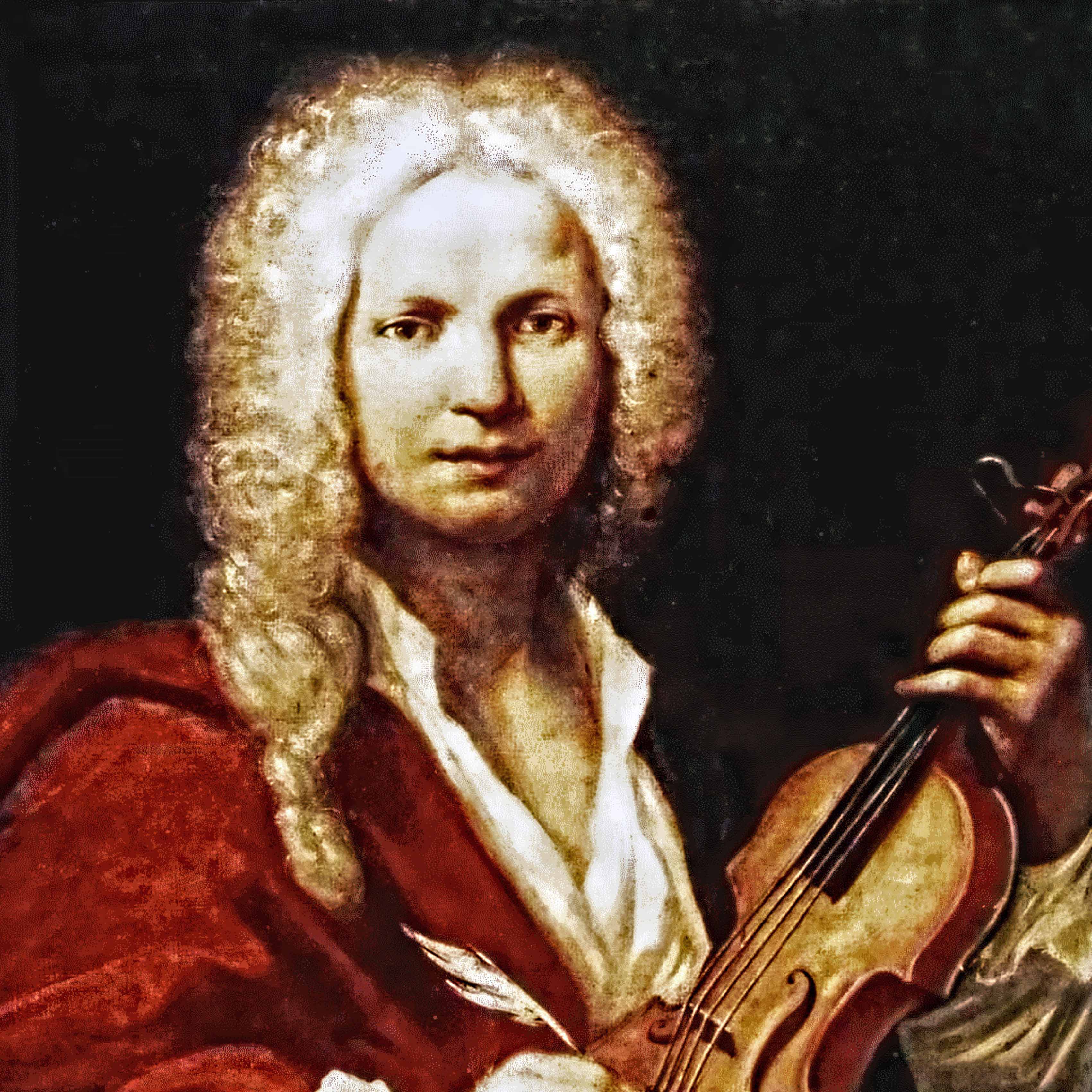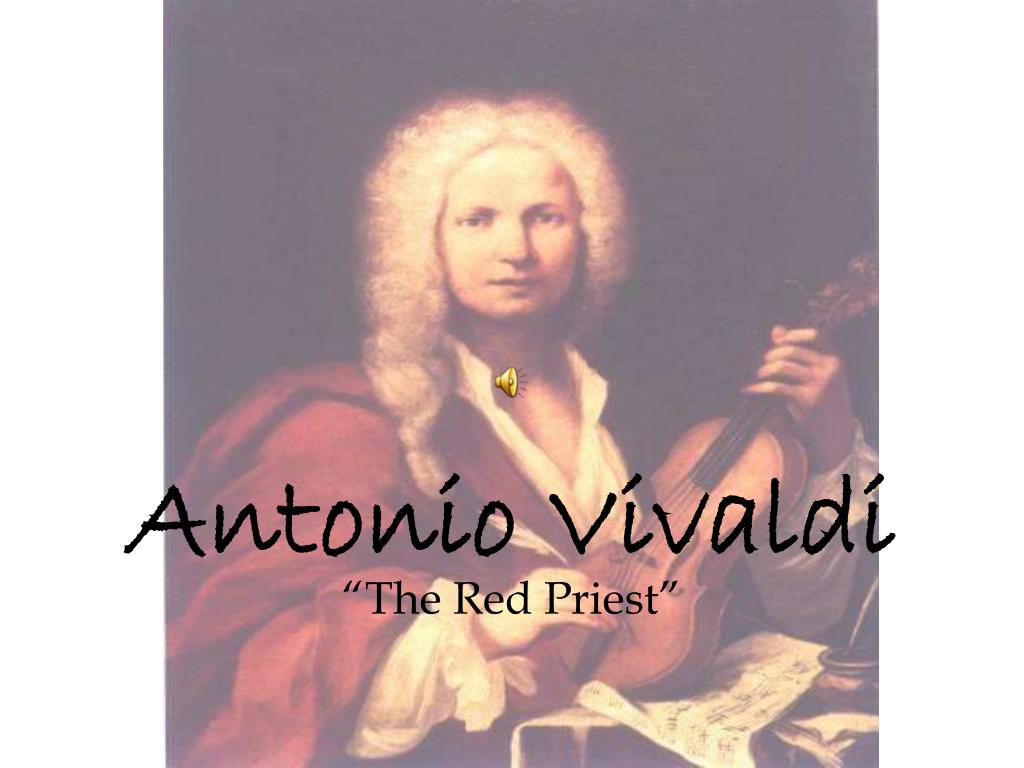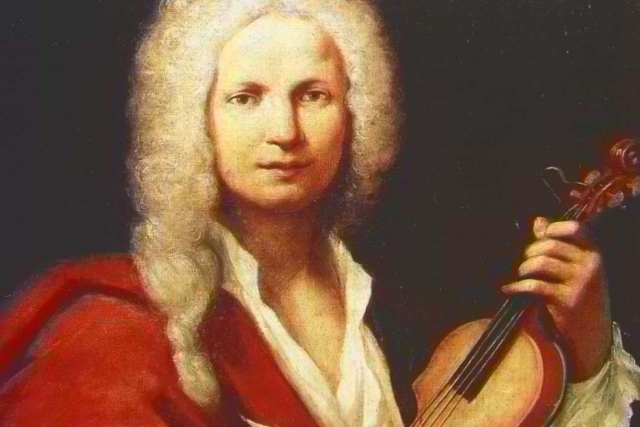Vivaldi Antonio Vivaldi
- Almost 500 concerti by Vivaldi survive. More than 300 are concerti for a solo instrument with string orchestra and continuo. Of these, approximately 230 are written for solo violin, 40 for bassoon, 25 for cello, 15 for oboe, and 10 for flute. There are also concerti for.
- Results for 'four seasons by antonio vivaldi' Filter. ABC Colouring Book 14 - Painting for the scences in four seasons.
The creator of hundreds of spirited, extroverted instrumental works, Italian composer Antonio Vivaldi is widely recognized as the master of the Baroque instrumental concerto, which he perfected and popularized more than any of his contemporaries. Antonio Vivaldi Antonio Vivaldi not only revolutionized the concerto form; by sidelining as a concert master, opera impresario, and ordained priest, he's the quintessential 18th century Renaissance man. Born in Venice on March 4, 1678, Vivaldi was ordained at 25 and nicknamed 'The Red Priest' for his shock of.
Top 10 facts about Antonio Vivaldi
Antonio Vivaldi was a 17th and 18th-century musician who’s become one of the most famous figures in European classical music.
He was born on March 4, 1678, in Venice, Italy. Chuck woolery twitter. Vivaldi must have been destined for greatness by virtue of his ground-shaking birth (Literally), a large earthquake occurred in Venice on his birthday.
Antonio Vivaldi was ordained as a priest at birth although he later chose to follow his passion for music. He became a prolific composer who created hundreds of works, became renowned for his concertos in Baroque style, and was a highly influential innovator in form and pattern.
Some facts about this Italian composer
Antonio Vivaldi The Vivaldi Album
1. Antonio Vivaldi was mentored by his father
Young Antonio was taught to play the violin by his father, Giovanni Battista Vivaldi, a professional violinist who was also a barber. Antonio got to tour Venice with his father while playing the violin together.
Through his father and the tours, Vivaldi met and learned from some of the finest musicians and composers in Venice at the time. While his violin practice flourished, chronic shortness of breath barred him from mastering wind instruments.
2. Antonio Vivaldi went to the monastery
At the age of 15, Antonio began studying to become a priest. He also took music lessons. He was ordained in 1703.
Due to his red hair, Vivaldi was known by the locals as “il Prete Rosso,” or “the Red Priest.” His career in the clergy was short-lived due to health problems that prevented him from delivering mass and drove him to abandon the priesthood shortly after his ordination.
3. Antonio Vivaldi the Maestro di violin
After leaving the priesthood, Vivaldi went to Ospedale della Pietà, an orphanage in Venice where he became the master of the violin. Os x 10.6 free download.
He was regarded as an exceptional technical violinist as well as a famous composer. He began his career at the orphanage aged 25 and stayed for over three decades composing most of his major work.
The orphanages provided shelter and education to children who were abandoned, orphaned or came from poor families.
Vivaldi taught and mentored the children who began to gain appreciation and praises abroad.
4. Vivaldi had a strained relationship with his workmates
Despite his amazing work and excellent teaching skills that saw most of the children master their musical skills and even joining the Ospedale’s renowned orchestra and choir, his relationship with the board of directors of the Ospedale was often on the rocks.
The board would vote every year to decide whether to keep him as a teacher. They unanimously voted him out once, and only later realized the importance of his role after a year. The recalled him back.
During that time, Vivaldi practised as a freelance musician. He later became responsible for the entire musical activity o the institution when he was called back.
5. Vivaldi took on other jobs other than teaching
In addition to his regular employment, Vivaldi accepted a number of short-term positions funded by patrons in Mantua and Rome.
It was during his term in Mantua, from around 1717 to 1721, that he wrote his four-part masterpiece, The Four Seasons. He paired the pieces with four sonnets, which he may have written himself.
6. Antonio Vivaldi’s secret love life
Vivaldi took up a job offer as a Maestro di Cappella by prince Philip of Hesse-Darmstadt in Mantua. He produced several operas in the three years he was there.
It was during this time that he was introduced to Anna Tessieri Giro, who became his student and protégée. She later moved in with him and would accompany him on his many travels.
Speculations flew around whether the two were involved in a romantic relationship beyond their friendship.
Vivaldi was quick to deny the speculations in a letter he wrote to his patron Bentivogilo on November 16, 1737.
7. Vivaldi had tough Financial Times
Although he seemed to be a successful and famous musician, he faced financial difficulties like most of his fellow composers at the time.
In his later years, Vivaldi’s compositions were no longer held in high regard as they once were in Venice. This could be as a result of his changing musical tastes that outmoded.
To get himself out of the financial murk, Vivaldi opted to sell a huge number of his manuscripts at low prices to finance his move to Vienna.
8. Vivaldi spent time in Vienna
Antonio Vivaldi Vivaldi Winter
There is no clear reason as to why he moved to Vienna, but it is believed that after meeting with Emperor Charles VI, he aspired to take up a position as a composer in the imperial court.

Vivaldi also staged operas while in Vienna when he lived near Karntnertor theater.

His new life and career were cut short after Charles VI died, leaving him without royal protection and no steady source of income. Antonio Vivaldi sunk back into bankruptcy.
9. Vivaldi died poor
Photo by Wendy Scofield on Unsplash
Antonio Vivaldi died a pauper despite his fame. He died on July 28, 1741, aged 63 of an internal infection.
No music was played at his funeral, only the bells at St. Stephen’s Cathedral chimed to note his passing. He was buried in a simple grave in a public hospital cemetery.
A memorial plaque has been placed on the site that was once his home, which has since been destroyed.

10. Antonio Vivaldi’s life documented
Antonio Vivaldi Vivaldi Spring
His life has been featured in a 2005 movie, Vivaldi, A Prince of Venice. A radio play was also done for ABC Radio that same year.
Antonio Vivaldi Vivaldi Summer
The play was later adapted to a stage play titled The Angel and the Red Priest. Apple macbook white.
Antonio Vivaldi Vivaldi Autumn
Vivaldi’s genius skills and music continue to influence many musicians centuries later. His complete music catalogue was found in 1926 at a boarding school in Piedmont. The music of Vivaldi has been performed widely since World War II. The choral composition Gloria, re-introduced to the public at Casella’s Vivaldi Week, is particularly famous and is performed regularly at Christmas celebrations worldwide. His work includes nearly 500 concertos that have influenced subsequent composers, including Johann Sebastian Bach.
Artist Biography by Rovi Staff
The creator of hundreds of spirited, extroverted instrumental works, Italian composer Antonio Vivaldi is widely recognized as the master of the Baroque instrumental concerto, which he perfected and popularized more than any of his contemporaries. Vivaldi's kinetic rhythms, fluid melodies, bright instrumental effects, and extensions of instrumental technique make his some of the most enjoyable of Baroque music. He was highly influential among his contemporaries and successors: even as esteemed a figure as Johann Sebastian Bach adapted some of Vivaldi's music. Vivaldi's variable textures and dramatic effects initiated the shift toward what became the Classical style; a deeper understanding of his music begins with the realization that, compared with Bach and even Handel, he was Baroque music's arch progressive. Though not as familiar as his concerti, Vivaldi's stage and choral music is still of value; his sometimes bouncy, sometimes lyrical Gloria in D major (1708) has remained a perennial favorite. His operas were widely performed in his own time.
Antonio Vivaldi Vivaldi
Details regarding Vivaldi's early life are few. His father was a violinist in the Cathedral of Venice's orchestra and probably Antonio's first teacher. There is much speculation about other teachers, such as Corelli, but no evidence to support this. Vivaldi studied for the priesthood as a young man and was ordained in 1703. He was known for much of his career as 'il prete rosso' (the red-haired priest), but soon after his ordination he declined to take on his ecclesiastical duties. Later in life he cited ill health as the reason, but other motivations have been proposed; perhaps Vivaldi simply wanted to explore new opportunities as a composer. It didn't take him long. Landing a job as a violin teacher at a girls' orphanage in Venice (where he would work in one capacity or another during several stretches of his life), he published a set of trio sonatas and another of violin sonatas. Word of his abilities spread throughout Europe, and in 1711 an Amsterdam publisher released a set of Vivaldi's concertos for one or more violins with orchestra under the title L'estro armonico (Harmonic Inspiration). These were best-sellers (it was this group of concertos that spurred Bach's transcriptions), and Vivaldi followed them up with several more equally successful concerto sets. Perhaps the most prolific of all the great European composers, he once boasted that he could compose a concerto faster than a copyist could ready the individual parts for the players in the orchestra. He began to compose operas, worked from 1718 to 1720 in the court of the German principality of Hessen-Darmstadt, and traveled in Austria and perhaps Bohemia. Throughout his career, he had his choice of commissions from nobility and the highest members of society, the ability to use the best performers, and enough business savvy to try to control the publication of his works, although due to his popularity, many were published without his consent. Later in life Vivaldi was plagued by rumors of a sexual liaison with one of his vocal students, and he was censured by ecclesiastical authorities. His Italian career on the rocks, he headed for Vienna. He died there and was buried as a pauper in 1741, although at the height of his career his publications had earned him a comfortable living.
